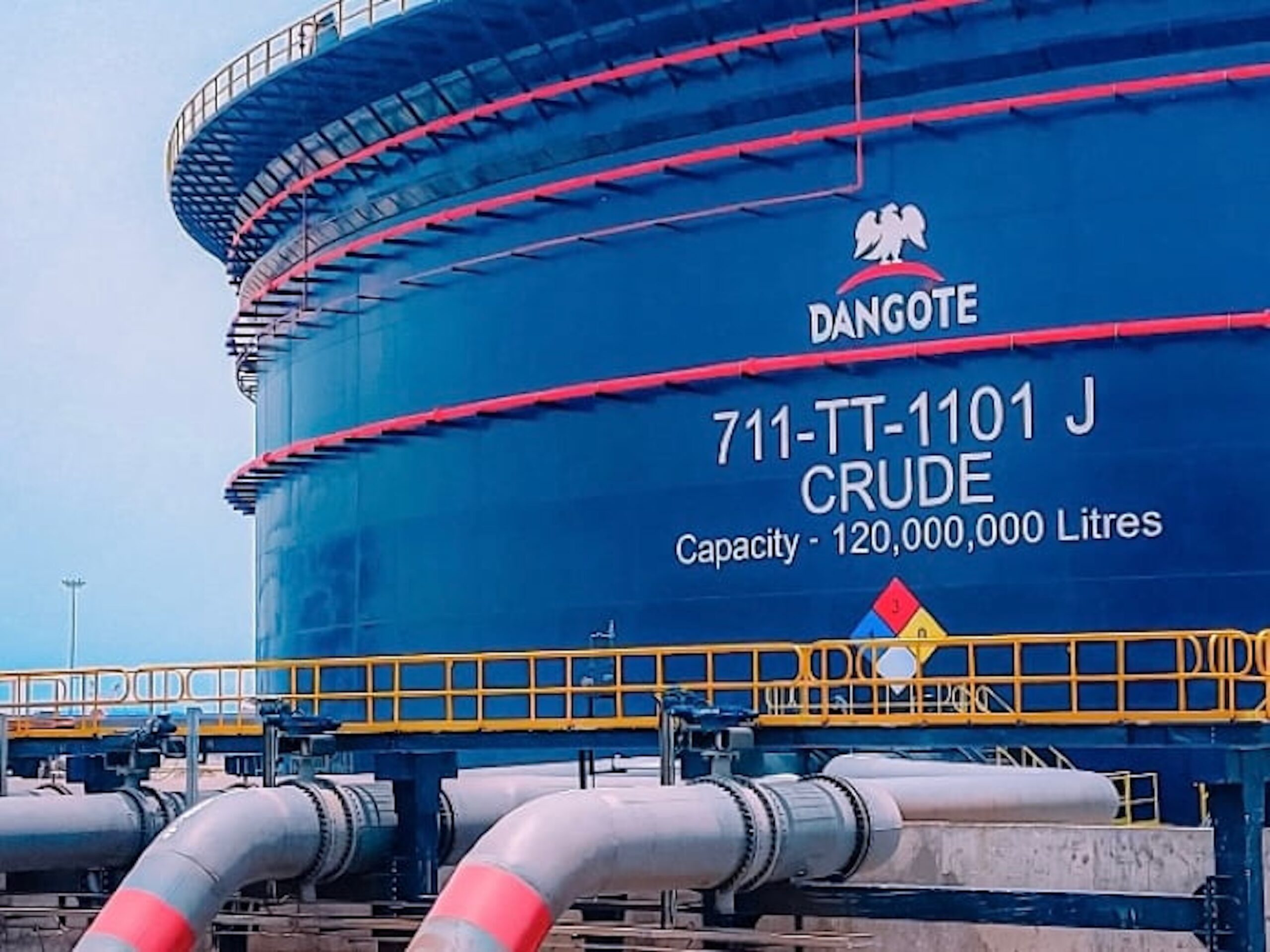In a development poised to redefine Africa’s energy landscape, the Dangote Refinery is on the brink of achieving a significant operational milestone. Touted as the largest privately-owned oil refinery in Africa, this state-of-the-art facility aims to address Nigeria’s long-standing challenges of fuel import dependency while positioning itself as a key player in the global energy transition.
This milestone comes at a critical time when the world is shifting towards renewable energy and environmentally sustainable practices, signaling a strategic move by the Dangote Group to adapt to evolving energy dynamics.
The Refinery: A Vision Realized
Situated in Lagos, Nigeria, the Dangote Refinery represents an investment exceeding $19 billion and is designed to process 650,000 barrels of crude oil per day. This integrated facility includes a petrochemical plant and a fertilizer production unit, highlighting its multipurpose capabilities and contribution to industrial growth.
The refinery’s completion signals a monumental achievement in addressing Africa’s energy deficit. Once fully operational, it is expected to meet local fuel demands while positioning Nigeria as a net exporter of refined petroleum products.
Key Highlights of the Refinery
- Massive Capacity: Capable of processing 650,000 barrels of crude daily, the refinery is designed to produce gasoline, diesel, jet fuel, and polypropylene.
- Employment and Economic Boost: Over 20,000 jobs were created during the construction phase, with thousands more anticipated as operations ramp up, including opportunities in ancillary industries.
- Environmental Commitments: The refinery is equipped to produce Euro-V compliant fuels, which have lower sulfur content and are aligned with global environmental standards.
- Energy Independence: By reducing Nigeria’s reliance on imported refined products, the refinery is set to save billions in foreign exchange, stabilize the naira, and enhance the country’s trade balance.
Navigating the Global Energy Transition
As the world transitions from fossil fuels to renewable energy, the Dangote Refinery occupies a unique position. While its operations focus on traditional oil refining, it incorporates technologies to minimize environmental impact and align with global sustainability trends.
Key Aspects of Alignment with Energy Transition:
- Cleaner Fuels: Production of low-sulfur fuels reduces carbon emissions and supports global climate goals.
- Economic Bridge: The refinery acts as a transitional facility, meeting immediate energy needs while paving the way for gradual adoption of renewable energy.
- Potential for Renewable Integration: Future plans may include incorporating renewable energy sources, such as solar or wind, into operational processes.
Economic Implications for Nigeria
The refinery’s impending operational milestone is set to have far-reaching economic impacts:
- Fuel Import Reduction: Nigeria spends an estimated $10 billion annually on fuel imports. The Dangote Refinery is expected to drastically reduce this figure, freeing up resources for other critical sectors.
- Foreign Exchange Savings: By producing refined products locally, Nigeria can stabilize its currency and reduce its trade deficit, enhancing economic resilience.
- Industrial Growth: The refinery will supply raw materials for various industries, such as plastics and textiles, spurring industrialization and value chain development.
- Job Creation: Beyond direct employment, the refinery’s operations are expected to generate jobs across related sectors, from logistics to retail.
Challenges and Opportunities
While the Dangote Refinery represents a transformative project, challenges remain:
- Crude Supply: Ensuring consistent supply of crude oil is essential for uninterrupted operations.
- Regulatory Environment: Navigating Nigeria’s regulatory framework and securing favorable policies will be key to the refinery’s long-term success.
- Global Oil Market Dynamics: The facility must remain competitive amidst fluctuating global oil prices and the growing emphasis on renewable energy.
A Regional Game-Changer
The Dangote Refinery’s impact extends beyond Nigeria. Neighboring countries in West Africa, many of which rely heavily on imported refined products, stand to benefit from stable supplies and competitive pricing. The refinery positions Nigeria as a regional hub for petroleum products, strengthening economic integration across the continent.
Future Prospects
Looking ahead, the Dangote Refinery is set to play a pivotal role in Africa’s energy evolution:
- Export Potential: With surplus refining capacity, the facility can export to international markets, enhancing Nigeria’s foreign exchange earnings.
- Renewable Integration: As global energy trends shift, the refinery could explore avenues to incorporate renewable technologies and diversify its offerings.
- Policy Influence: The project sets a precedent for private-sector-led infrastructure development, potentially influencing policy and attracting further investment into Nigeria.
Conclusion
The Dangote Refinery’s near-operational status marks a defining moment for Nigeria and Africa at large. As the continent’s largest private-sector investment in the oil and gas industry, it underscores the potential of local solutions to address global challenges.
While the world pivots towards renewable energy, the refinery provides an essential bridge, ensuring energy security and economic stability during this transition. As it prepares to achieve full operational capacity, the Dangote Refinery is not just a facility; it’s a symbol of Africa’s capacity to lead in energy innovation and industrial transformation.
